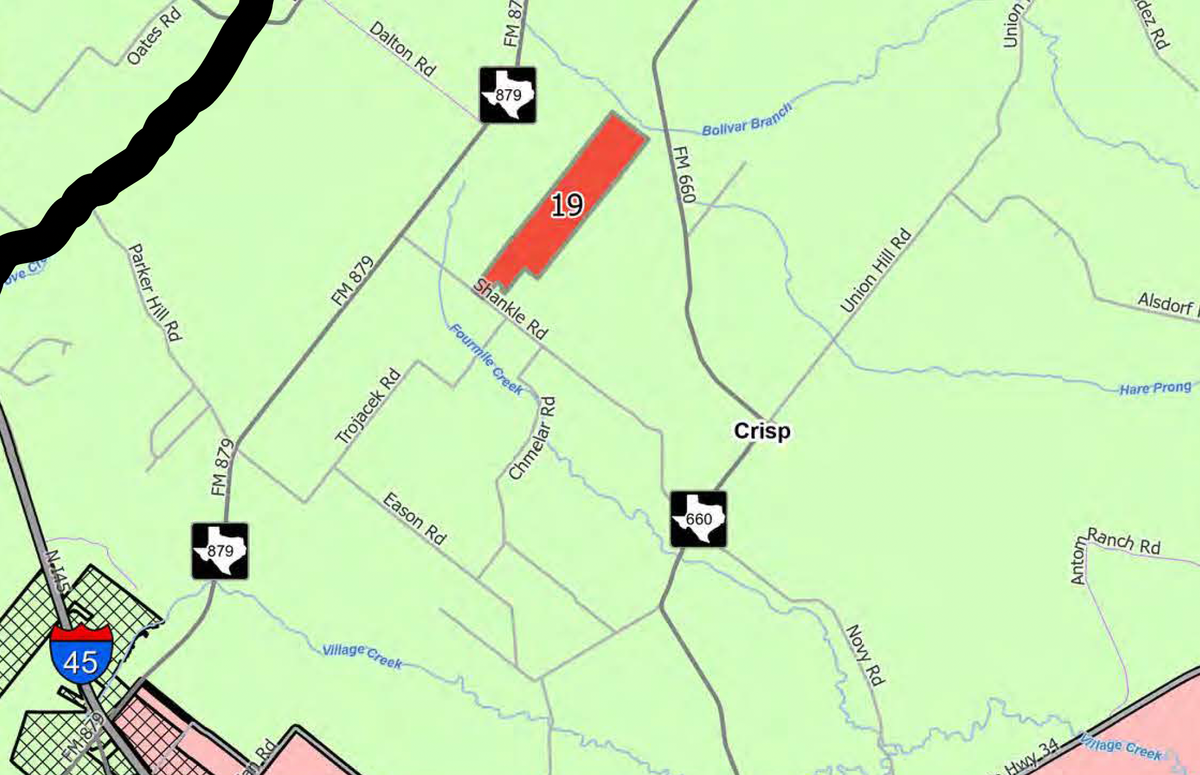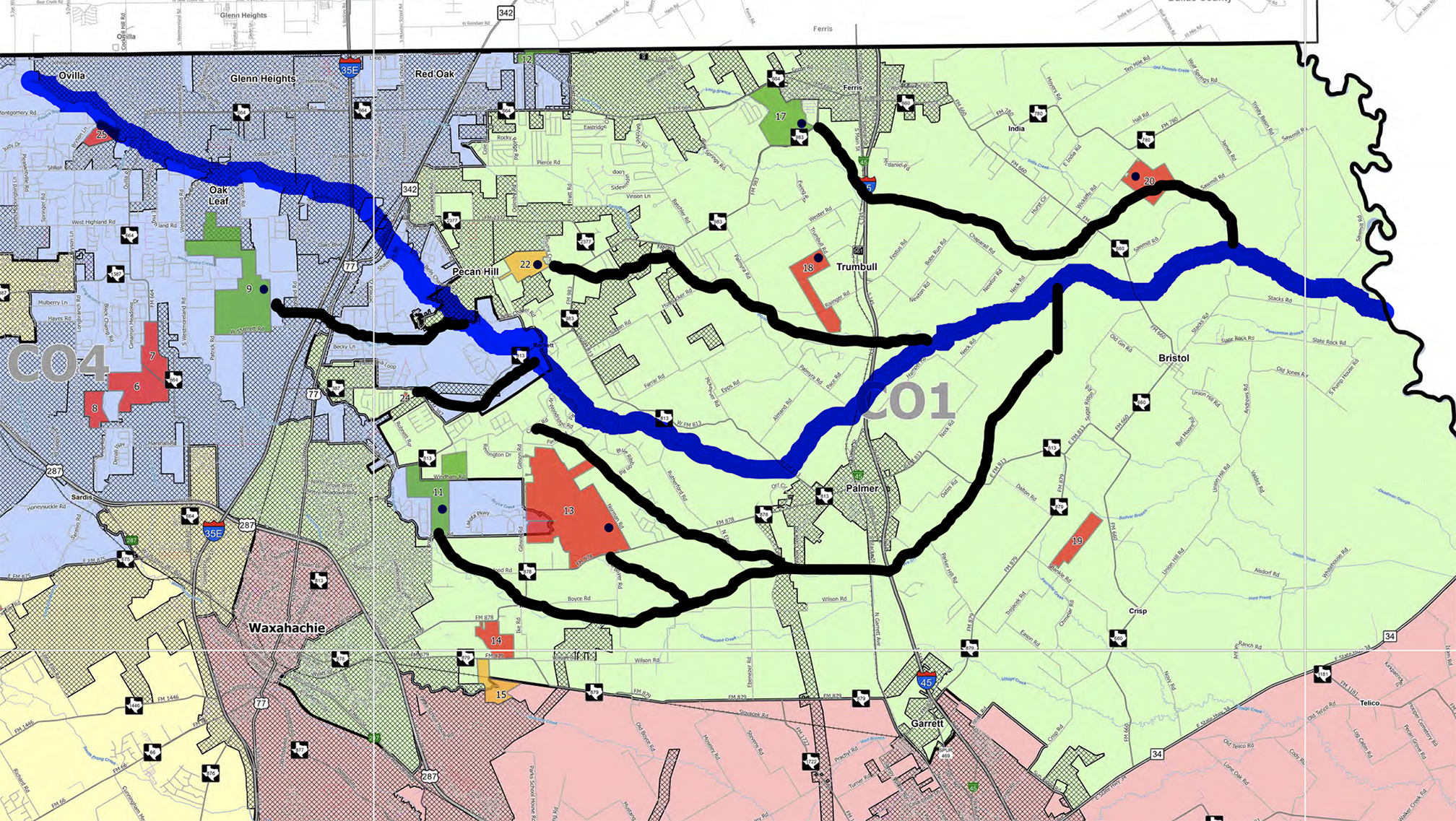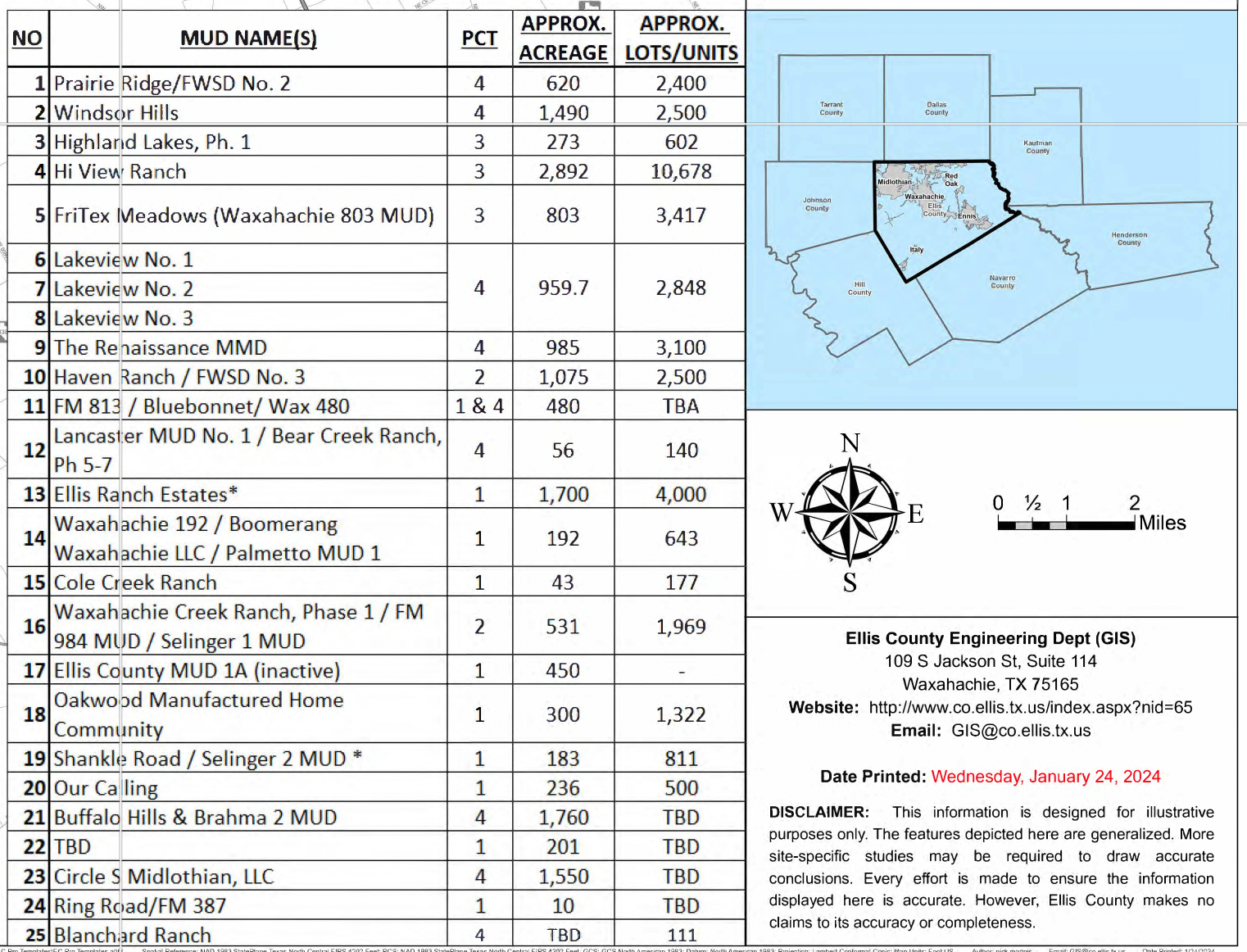CAECM to continue fight against proposed Shankle Road municipal utility district

They’re not going anywhere, and they’re in it for the long haul. That was the message delivered during a recent Citizens Against Ellis County MUDs meeting.
More than two dozen municipal utility and other types of special districts have been proposed within Ellis County, one of the nation’s top 10 fastest-growing counties, whose rural acreage is proving more and more attractive for development.
“Currently, over 28 municipal utility districts have made application for approval from the TCEQ; some are asking to establish wastewater treatment plants next to existing neighborhoods,” CAECM board president Ernie Martinek shared via email with In The Know Ellis.
CAECM has primarily fought the proposed Shankle Road development while also serving as a resource for other groups that have since formed in opposition to other MUDs and projects in rural Ellis County.
The fight against the Shankle Road proposal has been ongoing since December 2022, when the developer placed a legal notice in a local paper.
“We threw together a meeting regarding the petition and had over 300 people show up within about 30 hours' notice,” Martinek said. “It’s been a long, ongoing process. … It’s been a learning process.”
Within 24 hours of that initial meeting, a Facebook group was created, and then members began submitting their first of many comments and requests for public meetings and hearings to the Texas Commission on Environmental Quality.
The CAECM nonprofit was formed about a week later, and legal counsel was hired in February 2023. Meetings were held with local officials, with CAECM members testifying before the state Senate Committee on Water, Agriculture, & Rural Affairs that same month.
CAECM’s efforts haven’t slowed since. If anything, they’ve only built momentum and have proven inspirational to others concerned about the MUDs and other special districts being proposed in rural areas. Multiple anti-MUD resident groups have since formed in Ellis County, and at the recent meeting, Martinek encouraged CAECM members to continue their support of those groups’ efforts.
“They supported us,” he said.
It turned out to be a two-pronged fight against the proposed Shankle Road development: one against the MUD itself and the other against the project’s wastewater treatment plant.
The Texas Commission on Environmental Quality's commissioners denied the Shankle Road MUD in November; however, they approved its proposed wastewater treatment plant in December.
The developer’s request for the TCEQ to reconsider its denial of the MUD has since been turned down, leaving the option of filing an appeal in a Travis County district court.
Meanwhile, CAECM is filing its request for the TCEQ to reconsider its approval of the wastewater treatment plant. Martinek expects that to be denied, at which time the group will file its appeal in a Travis County district court.
With both legs of the proposed development expected to be fought now through an appellate process, Martinek sees another three to four years and possible legal fees of about $35,000 more before everything plays out.
“All of this will be determined by what the developer may or may not do,” he said. “There’s some chess that’s going to be played in the next few months.”
He takes heart from the odds that have already been beaten.
“When we started out, we were told we had a 99% chance of failure, that the TCEQ hadn’t denied [a MUD application] in the last 10 years,” Martinek said during the meeting, which saw about a hundred people on hand for the updates. “Well, guys, we did it. It’s not over [but] it’s not a whole lot left to do. I appreciate you’re coming out in support; you’re supporting yourselves.”
Beyond Ellis County residents’ efforts, Martinek said he’s also seeing other counties step into the fray to prevent what has been described as the TCEQ’s “rubber stamping” of MUDs and special districts with no local government and or resident input.
“We set a precedent,” Martinek said.
He expressed his appreciation for efforts by Ellis County officials, who along with several cities, have taken a position against the various MUDs. The county has expended monies for legal fees and expert witnesses and continues to be involved, he said.

After the meeting, Martinek provided ITKE with a map showing where at least eight of the proposed MUDs would be discharging from their proposed wastewater treatment plants into Red Oak Creek, while others are looking to discharge into Chambers Creek, Village Creek, 4 Mile Creek, Bardwell Lake, and Compton Lake, with all waters eventually heading to the Trinity River.
“MUDS negatively affect all Ellis County residents,” Martinek wrote in his email. “The county has spent over $350,000 taxpayer dollars in legal fees trying to protect Ellis County citizens from issues that MUDs create regarding schools, roads, flooding, taxes, hidden MUD fees, etc.”

He encourages county residents to become involved with CAECM and the other anti-MUD-related groups’ efforts and to stay informed by joining their respective Facebook groups.
Visit CAECM’s Facebook page here, where links to the other Ellis County-based groups also can be found.
Written by Jo Ann Livingston/ITKE.

